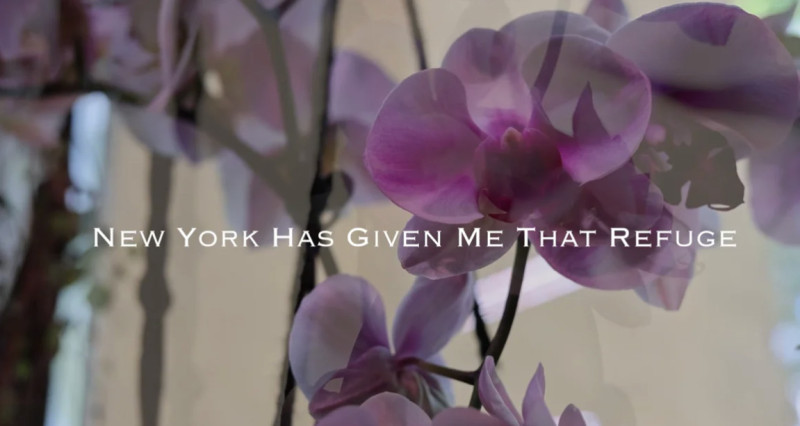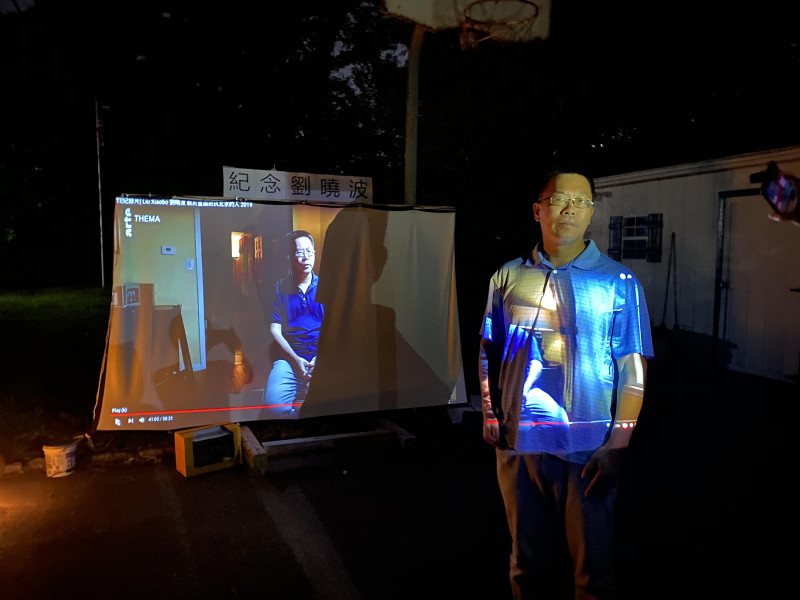
New York has given me that Refuge
In this film, refugee South Asian LGBTQ+ activist Barbara Khan talks about her migration from Pakistan and her life in New York as a trans woman.

Is there something like a common experience of refugeedom you would say? Is there something like a binding experience between you and the other scholars in Exile that you’re meeting in this network?
Yes, we have a weekly meeting. We talk about politics, identity. We can invite scholars and experts to talk about different topics and we also work on some projects and conferences and book projects. It’s important because we were forced to leave our home countries and we had to find a way to adapt to a new country and a new culture. For the Scholars in Exile, we have a similar experience. We fought for freedom and democracy in our home countries and then we were persecuted, and we had to leave our countries. In this network, we can continue our fight for freedom and truth.
How would you define yourself? Are you a refugee? Are you someone in Exile? Is there kind of bond to your home country still or are you living in the diaspora and consider yourself as such?
Yes, I’m a refugee. I can’t go back to my home country, China, and most of my family members, my relatives and friends are in China, and I was forced to cut off the connections with my friends, my colleagues, and relatives. In the new country I have to use my second language and I have to adapt to a new society and culture. And I was a human rights lawyer and activist in China, so one big loss for me as a refugee is I lost my battlefield. I can’t do this human rights work in China, where many of my human rights defender friends are in prison, they are being persecuted. But I still work on human rights in China. My research, my activities are all focusing on human rights in China. I keep regular contacts with Chinese human rights NGOs and defenders. I can do a lot of work that the people in China cannot do. I can share information with international community organizations and foreign government. I can organize and participate in protests, which would be extremely dangerous in China. That’s one thing.
Another thing is that I see myself as a world citizen. I was born in China, and I speak Chinese. So, I’m deeply influenced by the Chinese language and culture and politics. I am like a freedom fighter; I work for human rights, universal human rights. I fight for human rights for everyone. I am a world citizen, not Chinese or any other identity. In the United States, a free country with cultural diversity, with millions of migrants from all over the world I could deepen my understanding of my own identity. It’s really important to break the border of nationalism. The narrow mandate of nationalism has brought too many disasters to the world. I really hope more and more people could accept the concept of a universalism, world citizen. The most important thing in this planet should be freedom and human dignity.
How does Chinese still figure in your everyday life? How was the switch to English?
The mother tongue plays an existential role in shaping a person’s identity and ideology, thoughts, habits. And when you speak your mother tongue you can feel the complexity, the stability and you feel safe. But living in a country where your first language is not the official language, where it is not the frequently used language, then you feel the distance from your mother tongue. I think I tried my best to speak my native language, which is Mandarin Chinese. I speak Chinese with my children and my Chinese friends, and I read Chinese novels and literature. It’s important to keep your own language and even if you want to give it up, you can’t. It’s already in your blood and your brain. But it’s also important to learn a second language or third language. You open a new window when you understand a new language. Especially in the context of Chinese, because the censorship in China is really a subject, and the propaganda is powerful and so many Chinese people have been kind of brainwashed by the censorship information control and the Communist Party’s propaganda. When you can read and speak another language you have a wonderful opportunity to get rid of the negative influence of your first language tainted by an authoritarian system.
Has your experience as a refugee and identity as a refugee influenced your work at all? Both your academic work and I guess your work as a lawyer. Have you been focusing specifically on issues of forced migration?
I always focus on the most persecuted people. In China I defended the rights and freedom of Falun Gong practitioners and Christians, also political prisoners. So here I continue my academic research and human rights activism and I speak out for those most persecuted, most vulnerable people. I’m involved in the debate of American politics too, like gun control, abortion, and racial justice. There’s a long way to go in the United States to achieve the justice.
Teng Biao (Chinese: 滕彪) is a Chinese human rights activist and lawyer in China from 2003 to 2014 and now lives, works and teaches in American exile. Teng was a lecturer at the China University of Political Science and Law in Beijing and has been a vocal supporter of human rights activists such as Chen Guangcheng and Hu Jia. He has been arrested several times. He was a visiting scholar at Harvard Law School from (2015-16) and at the Chinese University of Hong Kong and now teaches at Hunter College and also at the University of Chicago. He co-founded two human rights NGOs—the Open Constitution Initiative, and China Against the Death Penalty.
Interview conducted by the We Refugees Archive team with Teng Biao in the spring of 2022. The interview was edited for length and clarity.